2
IT WAS MY FERVENT HOPE that my maternal grandfather, whom I called Guppa, a crackerjack Studebaker salesman and also something of an inventor, would someday appear on Flo and Freddie’s show. I think I must have gotten the idea the very first time I watched the show, but I can’t be sure about that; it’s hard to pin down the onset of an idea. I pestered poor Guppa about it endlessly. At that time he was laboring to cultivate a garden plot in our back yard, so he was at our house most evenings, hacking away at the grove of bamboo at the foot of the hill, which made him an easy target for my pestering.
The hill was actually a mound created by the builder of our house. Before construction began he had scraped the lot bare and flat, plowing all the scrub pine and scrub oak into a mound that ran along the rear property line like a drumlin deposited by a retreating glacier. Tree trunks and stumps projected from this heap, and in it were gaps and caves to explore, but it provided my family more than mere amusement. It also gave us something to do, a mission we could undertake as a family: for nearly a year our Saturday occupation was supposed to be the elimination of this mound of debris. We never got very far. In time, weeds furred it, and it came to look something like a true hill, enough like a hill at any rate for my parents to accept it as a part of their landscape. In fact, since it was the only aspect of their landscape that varied from the smooth plane that the developer had created with his bulldozer, it became the proudest feature, and they stopped calling it “that mound” and began calling it “the hill.” Then my mother, under the influence of an ad in a magazine, decided to make big money growing bamboo and fashioning fishing rods from it. The hill struck her as the perfect spot for a grove of bamboo, and that’s where she planted it. From her venture we learned that the market for bamboo fishing rods was considerably smaller than we had thought and that once a grove of bamboo gets a foothold the stuff settles in for the long term, expanding at a slow but steady rate, annually claiming a little more territory. Our grove had spread down from the hill and started across the yard toward the house. We would hack away at it as fiercely as we could all weekend, but during the week, inch by inch, yard by yard, it would grow right back.
My mother and I thought it might be best to give up and let it grow, but my father had developed a grudge against it. “The stuff is going to take over,” he’d say. “It’s just like the goddamned Communists. You can’t let them get established. Some day you’ll know what I mean, Peter. Some day you’ll see.”
When Guppa decided that he wanted to cultivate a garden, the garden he had in mind soon outgrew the space he had in his own yard. He decided to use ours, which was much larger. Guppa never did this sort of thing by halves. He might have begun with the idea that he was going to have a backyard garden like anyone else’s—some radishes, cucumbers, onions, peppers, and tomatoes—but in his fertile mind ideas grew like bamboo on a trash heap. By the time he approached my father with the proposal that he plant his garden in our back yard, he had something considerably grander than radishes in mind.
“Wheat,” he said to my father.
“Wheat?” said my father.
“Wheat,” said Guppa. “Your back yard will be known as the breadbasket of Babbington.”
“The breadbasket of Babbington,” said my father.
“Like the wheat fields of Kansas, fabled in song, but on a smaller scale, of course,” said Guppa.
“Of course,” said my father.
“However,” Guppa hastened to assure him, “within the limitations of scale, it will be just as magnificent.”
“Sure, go ahead,” said my father, to everyone’s surprise.
“What I had in mind was to give you a share of the crop,” said Guppa.
“That’s all right,” said my father. “I don’t care about that.”
“But there should be plenty for all of us,” said Guppa.
“Okay,” said my father. “It doesn’t matter to me one way or the other. But I do have one condition.”
“What’s that?” asked Guppa.
“Beat that bamboo back to the hill and don’t let it come back down across the yard.” He picked up his paper and hid himself behind it.
[to be continued]
In Topical Guide 568, Mark Dorset considers Geographical Features: Drumlin from this episode.
Have you missed an episode or two or several?
You can begin reading at the beginning or you can catch up by visiting the archive or consulting the index to the Topical Guide.
You can listen to the episodes on the Personal History podcast. Begin at the beginning or scroll through the episodes to find what you’ve missed.
You can listen to “My Mother Takes a Tumble” and “Do Clams Bite?” complete and uninterrupted as audiobooks through YouTube.
You can ensure that you never miss a future issue by getting a free subscription. (You can help support the work by choosing a paid subscription instead.)
At Apple Books you can download free eBooks of Little Follies, Herb ’n’ Lorna, and Reservations Recommended.
You’ll find overviews of the entire work in An Introduction to The Personal History, Adventures, Experiences & Observations of Peter Leroy (a pdf document) and at Encyclopedia.com.




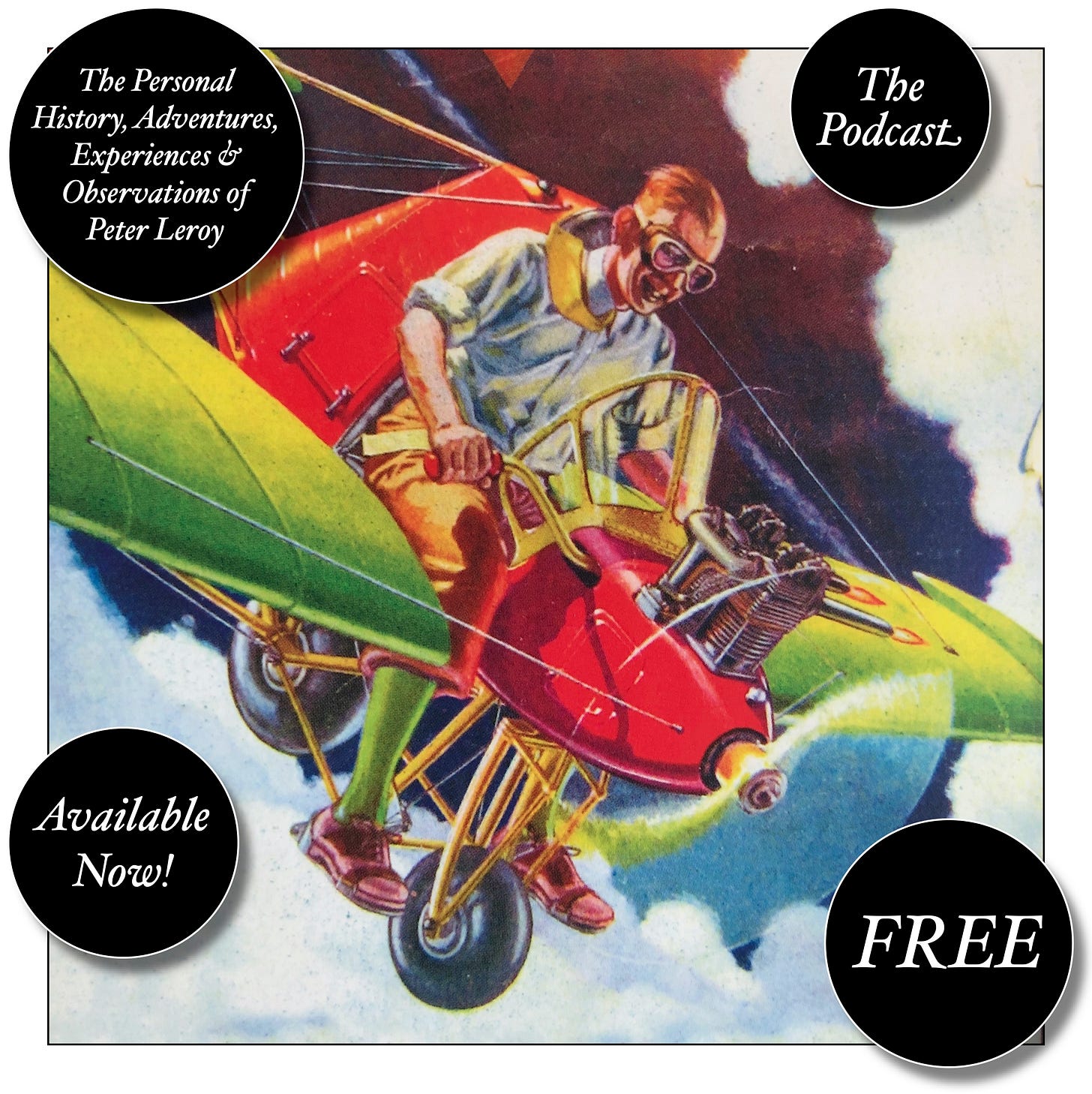



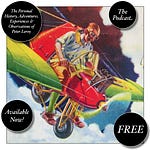
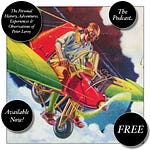
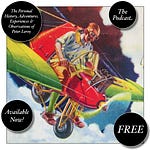
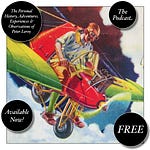

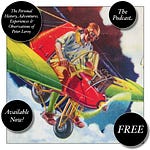
Share this post